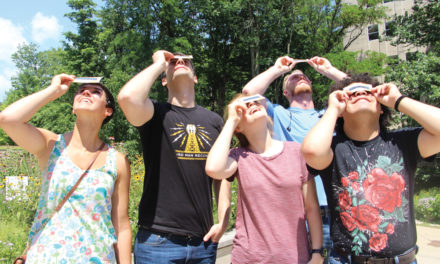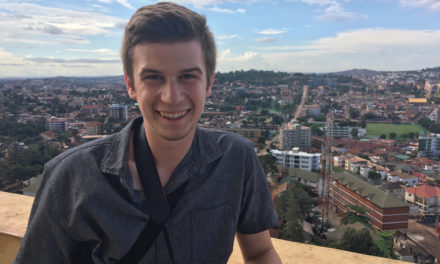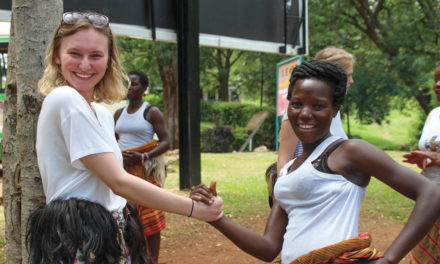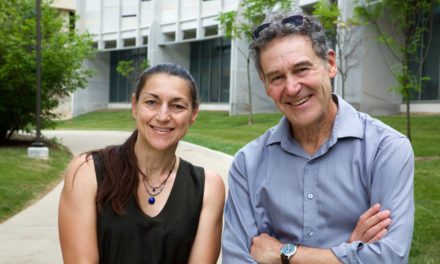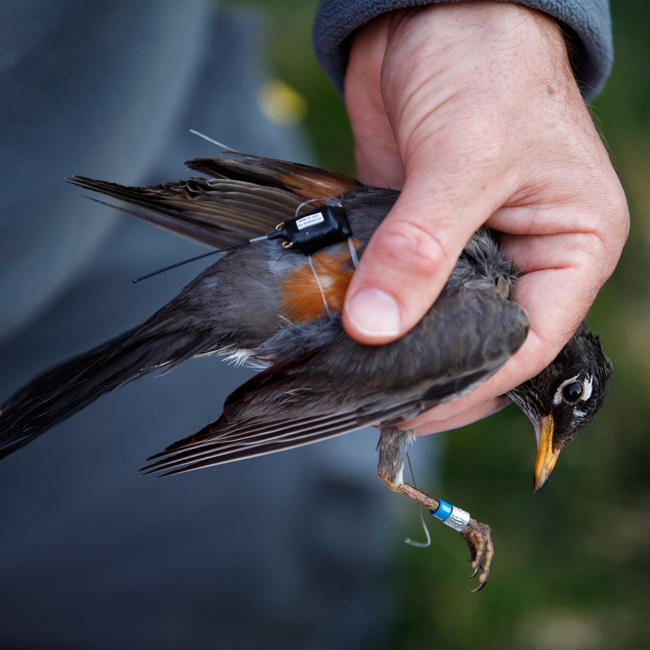
A robin equipped with a GPS tracking “backpack.” Photo by James Brosher, Indiana University
by JANA WILSON
For many, the sight of a red-breasted robin pulling worms from the ground is a sure sign of spring. Conventional wisdom holds that robins fly south for the winter and return north as the temperatures warm up.
That’s not always the case, says Alex Jahn, a migration specialist with the Environmental Resilience Institute at Indiana University. Jahn studies bird migration patterns to see how they might shed light on environmental changes.
Before coming to IU in 2018, Jahn worked for more than a decade studying the migratory patterns of birds in North and South America. He also worked for two years at the Smithsonian Migratory Bird Center in Washington, D.C. There, he noticed the large number of robins flying around the city and thought studying
a common backyard bird might offer information about environmental changes in our midst.
To understand the migration patterns of local robins, Jahn has begun using tiny GPS harnesses—little bird “backpacks”—to gather data on their movements.
While it’s not uncommon for researchers to attach GPS units to larger birds and other animals to track their movements, Jahn says GPS harnesses for small birds are relatively new because the units have to be so tiny. They weigh only about 2.4 grams. “It’s hard to miniaturize the battery,” Jahn explains. “But that has improved over the last five years and now we can use them on these small songbirds.”
Findings thus far show that some robins may never leave the state at all and stick it out over the winter in warmer urban areas if food is available. “Their main focus is food,” Jahn says, noting that many people feed backyard birds throughout the year. Other robins may migrate, but not as far as they might have in the past if food is available closer to their mating area.
Jahn says there is more to find out about the habits of the robins and how that, in turn, is affected by changes in the environment. “Untangling the reasons why these things happen will be interesting,” he says.


